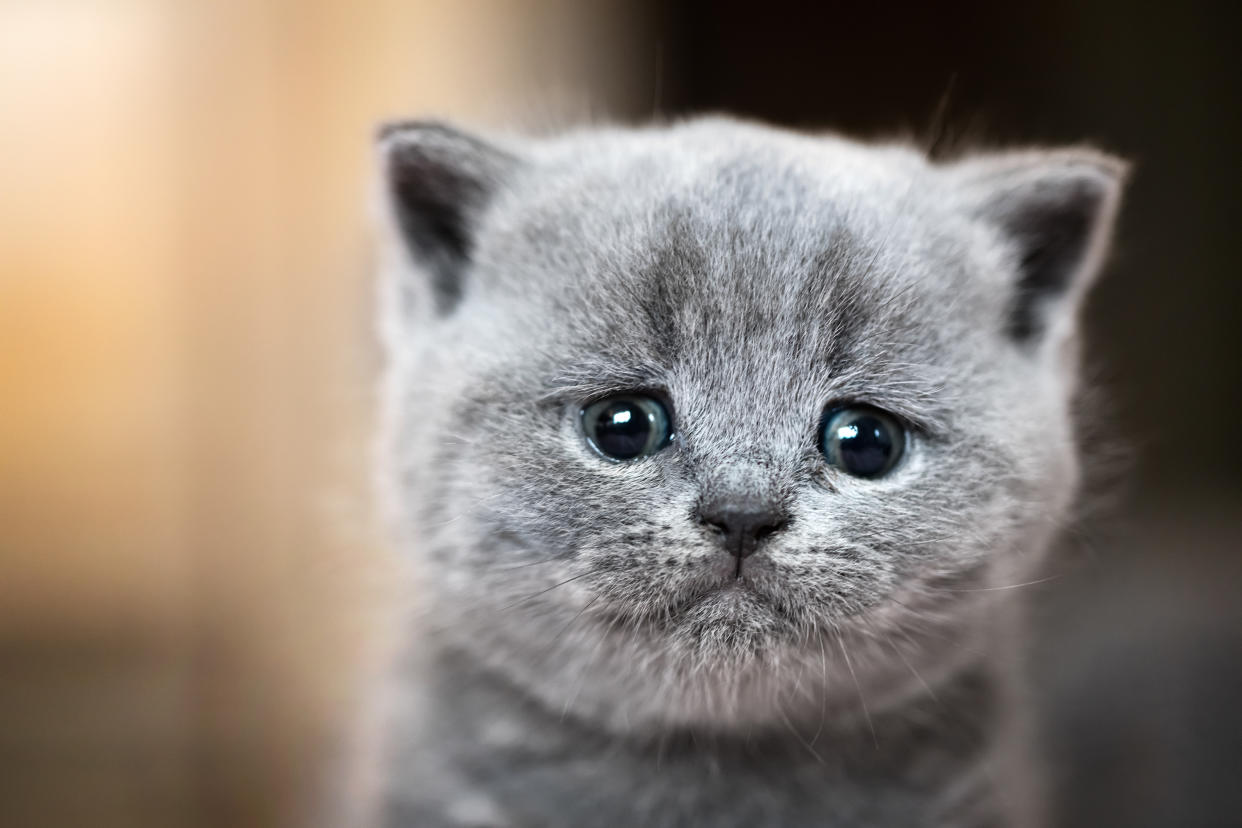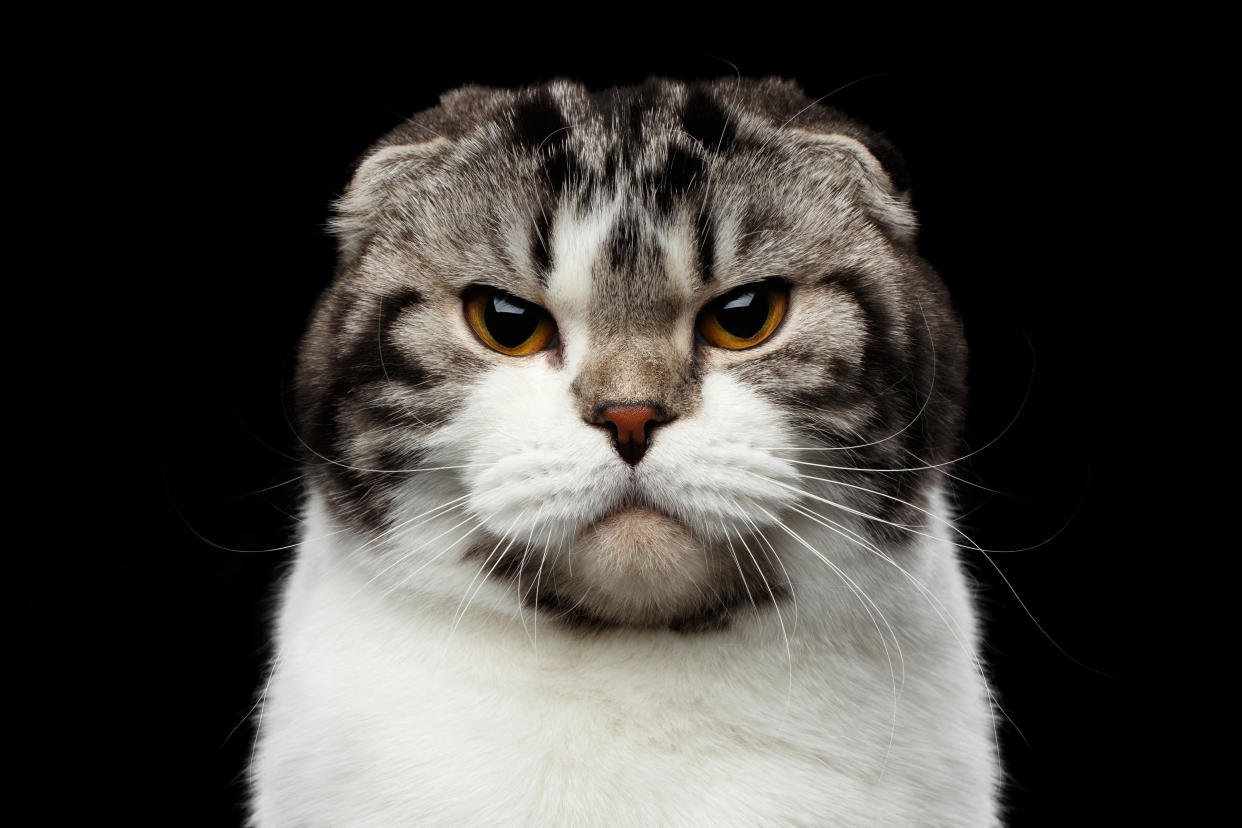Worried your cat is depressed? There's an app for that...

Are you worried that your moggy might be a bit maudlin? With their inscrutable stares, cats are notoriously difficult to read, so it can be very difficult to tell what they're really thinking.
Enter Tably, the new iPhone app which promises to tell you if your cat is depressed. You simply aim your smartphone at your feline's whiskery face and the app will tell you if it's happy - or a real-life grumpy cat.
Watch this: Rescued dog will never give up trying to befriend grumpy cats
The app, developed by the Canadian AI company Alta ML, assesses your cat's expression using machine learning and "the feline grimace scale", a scientific tool for vets developed at Montreal University.
This uses factors such as ear and whisker position, eye openness and muzzle shape to assess levels of pain and distress in cats.
Many cat owners fret because, unlike with dogs, it can be very difficult to know if your cat is in pain or distress - as their facial cues are subtle to non-existent. So does Tably really help you to know what your cat is feeling?
Unfortunately, many moggy mums and dads have reported finding Tably a bit of a challenge to use - and feel dubious about the app's results.
"It's incredibly frustrating," says Richard Collins, a software consultant from Kent, after Yahoo asked him to put Tably to the test with his two cats.

"They need to work on their interface and allow you to upload existing photos. At the moment you have to press the 'take photo' button and hope the cat will look at the camera - which is pretty impossible!
"Cue me crawling around the kitchen. It kept saying they were in a bad mood but it's impossible to know if that's true, really."
Luckily, there are more reliable ways to try and understand your cat's feelings.
"A cat's body language can tell us about how they are feeling, for example, the position of their ears or tail," Alice Potter, cat welfare expert for the RSPCA, told Yahoo.
"However, reading their body language can take some practice as cats have evolved from a solitary species who mostly communicated via scent signals. The RSPCA has some great illustrations which can help owners to read their cat’s subtle body language."

While it can be hard to read your cat's body language, behavioural changes can tell us a lot more.
"It’s also important to get to know your cat and understand what is normal behaviour for them so that you can be observant to any changes, and know when something may be wrong," said Potter.
Read more: Pets and the pandemic - the impact animal had on our mental health and wellbeing
"Behaviour which may signal something is wrong could include hiding, or changes in how much they sleep, eat or go to the toilet. These changes can sometimes mean they might be feeling bored, stressed, fearful or they could be in pain. The first thing to do if you notice these is to take your cat to the vet to ensure there are no underlying health conditions."
"It can also be helpful to put yourself in your cat's shoes and consider whether there are any obvious causes of the change in the way your cat is feeling, for example, new additions to the family (human or animal!), changes to routine, moving house or new cats in the neighbourhood. There could be a variety of reasons why your cat may be feeling stressed or anxious."
"Most reputable charities like the RSPCA have great advice on how to deal with these types or issues and on how to keep your cat happy and healthy. You may also need to speak to your vet about being referred to a Clinical Animal Behaviourist for further support."
Read more: My cats have done wonders for my mental health in lockdown
So can cats really get depressed?
"Cats are very intelligent and are capable of experiencing a range of emotions including negative ones such as sadness," said Potter. "However, it is also important to remember that as much as we love our pets, cats are not little people and they don't necessarily experience emotions in the same way that we do."
Clearly, Tably needs some wrinkles ironing out. But the app-owners have plans to make it part of the post-appointment follow-up process for vets, and even hope to scale up the app so it can access other similarly hard-to-read species.
“It has kind of become its own entity,” the app’s senior product manager, Michelle Priest, told Wired. “We’re starting with cats, although I think this idea could work with multiple species and grimace scales,” Priest says.
Watch this: The 'saddest cat in the world' learns to love life again


